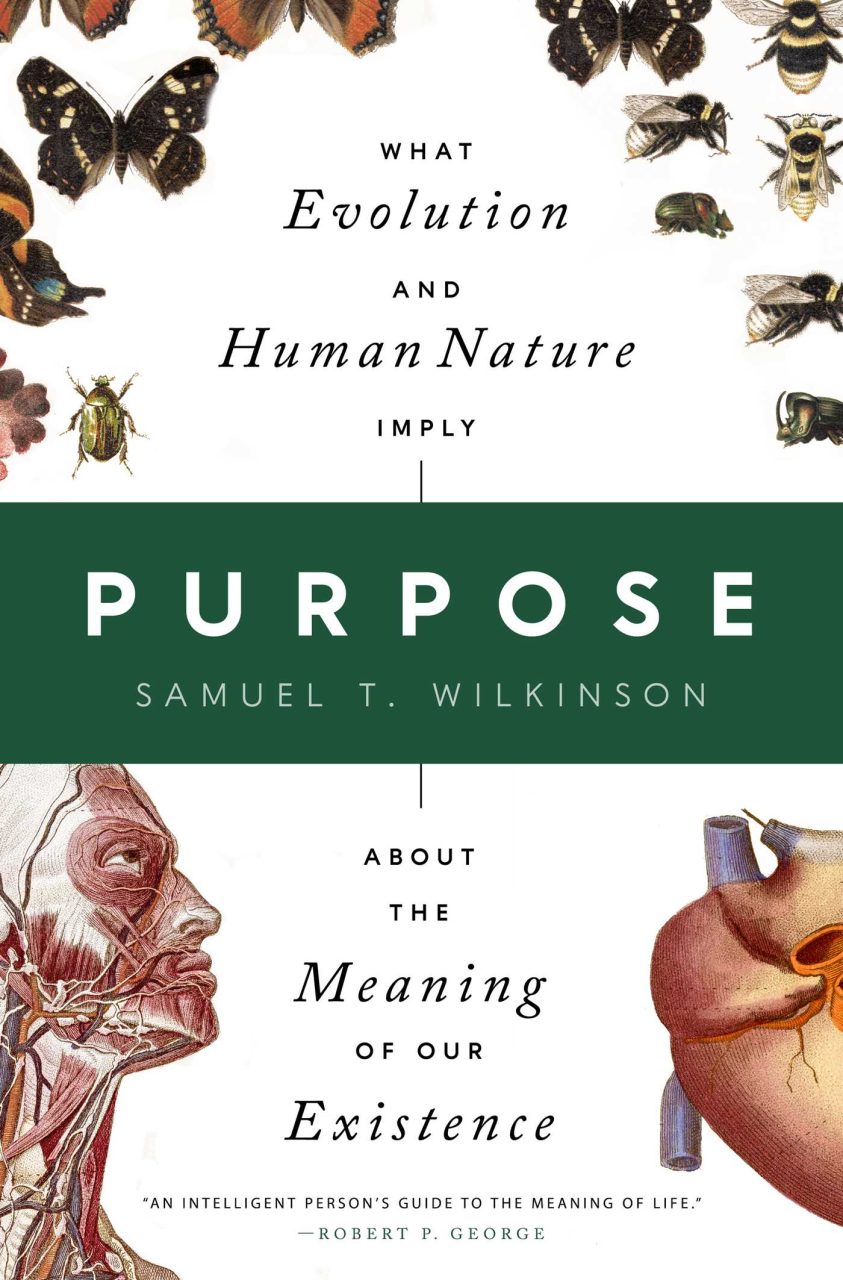Book reviewed by Samuel McKee, June 2024
Purpose: What Evolution and Human Nature Imply About the Meaning of Our Existence
by Samuel T. Wilkinson
New York: Pegasus Books, 2024; 340 pages
ISBN 9781639365173, first edition, hardcover
AUD$26 approx.
Wilkinson is a professor of psychiatry at Yale University who brings his knowledge to bear in Purpose on the question of evolution’s ability to explain our nature, with particular focus on our social and individual need for meaning and relationships. He is a celebrant of nature’s capacity to form our behaviour through evolution’s constrained, yet comprehensive ability. This is the best work yet for a popular audience in expositing evolution’s formative process for our dual nature of selfishness and altruism, lust and love, aggression and cooperation, individual and societal needs, and capacity for freedom.
Except for some personal examples, Wilkinson is pulling together the work of scientists who have contributed to their disciplines from the past century and a half into an accessible book of moderate length. Evolutionary biologists, geneticists, sociologists, psychologists, and philosophers of biology have their voices succinctly integrated without the work becoming too dense, yet this is quality academic work that is fair to its subdisciplines.
The crux of his case begins with convergent evolution, with particular emphasis on the work of Simon Conway-Morris at Cambridge. Wilkinson outlines convergence in sufficient detail to show the problems with viewing evolution as a mindless, unguided process that empties life of meaning. He keenly shows with his expertise how family and monogamy in human relationships can point to an evolutionary undergirding as the best for individuals and society.
Where Wilkinson excels in persuasion is his ability to balance across chapters the dual nature of the forces at work in selection: lust and love in our relationship formation, aggression and altruism in our social success, monogamy and kin selection versus our desire to pass on our genes at higher frequency, and the importance of cooperation in our survival against pure selfishness. There is a strong balancing act born on comprehensive research that did not appear to leave any gaps in accepting the strength of argument from opposing voices. Kin selection in particular is given a thorough examination at the centre of the book, with Wilkinson acknowledging the importance of the work of E. O. Wilson, who many regard as the founder of sociobiology, with the criticisms that have undermined many of Wilson’s claims in the decades since the birth of sociobiology.
Sceptics to Wilkinson’s claims may be keen to point out that for much of the book there is little need to posit God behind evolution. He states that “I often refer to ‘nature’ or ‘evolution’ as a force that has shaped, moulded, and affected our psychological capacities. If you’d like, you can substitute the word ‘God’ into these passages. To me, it’s much the same” (p. 17). Then why posit God at all? However, Wilkinson brackets his work by emphasising convergence as a constraining, and even guiding force behind nature. Drawing especially on the research of Conway-Morris, he derides the narrative of randomness and chance in guiding both development and behaviour.
Psychology is used to critique the sociobiology of E. O. Wilson to show that “the way evolution has shaped our nature reflects the purpose and meaning of our existence” (p. 18). Narratives of nihilism as a result of the randomness of life are unfounded to Wilkinson, who draws on extensive research to illustrate that evolution is “constrained and guided by natural laws and higher-order principles” (p. 34). Our arrival at a human dependence for meaning, family, and purpose have evolved carefully and for collective reason. Rather than a social byproduct, or epiphenomenal emergence, the benefits of marriage and tight family units is no accident. As the book develops, he leads us to appreciate that it is highly unlikely that evolution can be anything but theistic in its pointing us to the good life, concluding that “If God really intends for us to multiply, to replenish the earth, and to have joy in our posterity, then it’s no wonder that a process such as evolution was used in our creation” (p. 232).
Whilst evolutionary biology can explain the origins of much of what makes us human in our behaviour and formation of societies, it cannot determine what is “good” as one still cannot get an ought from an is. However, here is where Wilkinson’s Christian underpinning can make up the difference.
Wilkinson’s championing of evolution as God’s provision of purpose and meaning is compelling and should be celebrated for both its popular accessibility and depth of argument. In conclusion, I welcome Wilkinson’s contribution to the question of purpose and meaning in evolution as an exceptional and accessible offering and recommend it to all who wish to know more about the subject matter even without much prior knowledge.

